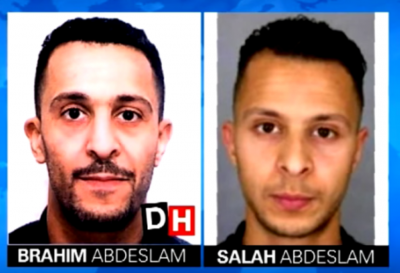
Terror suspect Salah Abdeslam appeared in a Paris courtroom Wednesday but declined to address the charges against him — saying he was exhausted due to his transfer from Belgium earlier in the day.
After Belgium turned the 26-year-old suspect over to French authorities early Wednesday, elite French military police flew him to France.
He was then handed over to authorities and taken to the Palais de Justice in central Paris to appear before the investigating magistrate, CNN’s French affiliate BFM-TV reported.
His next hearing has been set for May 20, according to his French attorney, Frank Berton.
The Belgian-born French citizen, who is charged with participation in terrorist murder and taking part in the activities of a terrorist organization, will be held in solitary confinement under maximum security conditions, French Justice Minister Jean-Jacques Urvoas told reporters.
“A dedicated surveillance team of skilled agents, trained for detention of dangerous individuals, will be in charge of him,” he said, according to BFM.
Marcel Duredon, a union representative at Fleury-Merogis Prison in the southern suburbs of Paris, confirmed to CNN that Abdeslam would be held at that institution.
Abdeslam, the only survivor of the group of men accused of carrying out the November 13 attacks in Paris, was Europe’s most wanted man before he was captured last month in Brussels following a shootout with Belgian authorities.
Lawyer: Judge him for what he did
Abdeslam’s French attorney, Frank Berton, told BFM that his client “won’t stay silent” and said he planned to mount a “defense based on explanation.”
“Obviously the line of defense will be to explain things, especially his rather fast radicalization, to explain his acts, what happened moments before the Bataclan attack, what happened at the Stade de France,” he said, referring to two targets in the Paris attacks.
“He has to tell us about his journey and his role.”
Abdeslam had to be judged “for what he did, not for what he didn’t do,” Berton said.
“He has to be judged for what he did, and not for what he represents as the last survivor. He shouldn’t carry the burden of acts which are not his.”
Victim’s relative: ‘Very emotional’
Aline Le Bail-Kremer, a spokeswoman for the French Association of Victims of Terrorism whose cousin was among those killed in Paris, said the extradition was “very important and very emotional.”
She said families were desperate for answers, but there was also “a strong risk of disappointment.” While Abdeslam has claimed he’s prepared to talk, they have doubts about how honest his account will be, she said.
Seeing justice take its course was the most important thing, she said.
“It’s a necessary step to continue an essential work of mourning.”
Samia Maktouf, a lawyer for the families of 16 of the 130 attack victims, echoed her views.
“It is a first step to knowing the truth. Today, the families are looking to know what happened on November 13, and even though we don’t trust Salah Abdeslam to tell the truth, we’re still hoping,” she said.
“It’s a kind of relief for them to know he’s here.”

Leave a Reply
You must be logged in to post a comment.